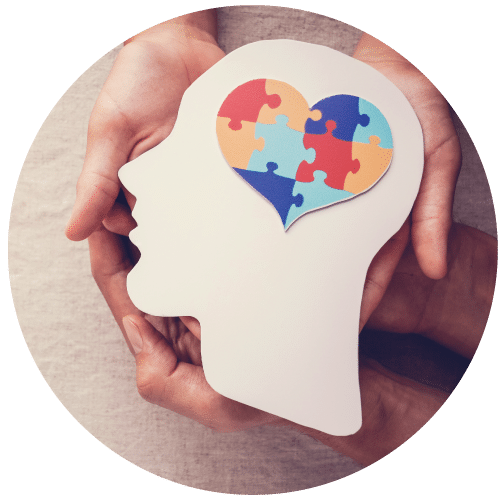By GinaMarie Guarino, LMHC
Adoption is a delicate process that comes with many different considerations. The relationship between an adopted child and his or her adopted parents is unique, and in many ways unlike that between parents and their biological children. It is difficult to predict how a child will adapt to his or her new home and family, so it is important to prepare for several different considerations about the mental and emotional wellness of adopted children.
The relationship between an adopted child and his or her adopted parents is unique, and in many ways unlike that between parents and their biological children.
Mental Health and Attachment Issues
Research has found that adopted children are at risk for suffering from mental health disorders. Twelve to 14 percent of adopted children in the United States between the ages of 8 and 18 are diagnosed with a mental health disorder each year, and adopted children are almost twice as likely as children brought up with their biological parents to suffer from mood disorders like anxiety, depression, and behavioral issues.
Several factors contribute to an adopted child’s risk of suffering from a mood or behavioral disorder, like:
- Age of adoption
- Where the child was adopted from
- Conditions of the foster home and family
- Whether the child has contact with his or her biological family members (Open Adoption)
- History of mental illness in biological family

These contributing factors directly affect the adopted child’s ability to attach and bond with his or her adopted parents. Issues with attachment are common and are often a major contributing factor to the onset of mental health issues. For example, many adopted children suffer from reactive attachment disorder (RAD), which is a disorder in which a child is uncomfortable with and avoids being comforted by caretakers. Adopted children develop RAD as a result of not getting sufficient nurturing, comforting, and consistent care while in foster care.
Children with RAD tend to suffer from:
- Self-esteem issues
- Anxiety
- Depression
- Self-harm
- Behavioral issues
- Academic struggles
- Difficulty building meaningful relationships
RAD and related struggles can have a major impact on an adopted child as he or she reaches young adulthood. Young adulthood is a critical time for discovering one’s identity, purpose, passions, and place in the world. As the adopted child grows, he or she begins to understand more about the world. With that understanding comes more questions. Some questions an adopted child may begin to think about are:
- Where did I come from?
- Why was I given up for adoption?
- What are my roots?
- Do I fit in here?
- Am I lovable?
- What is going to happen once I leave for college / enter the adult world?
Such questions cause stress, anxiety, and sometimes anger and depression. There may be resentment toward adopted or biological parents, or a poor sense of confidence and low self-esteem, which are triggered by the confusion behind these unanswered questions.
Transitioning to College

Entering college is an exciting, stressful, and challenging time for any young adult, and adopted children have their own challenges to overcome with the new venture. If the child enters college already suffering from a mental health or behavioral issue, it is likely that the issue will be exacerbated once entering a new environment. If the child does not already have a pre-existing mental health issue, it is still possible for them to develop anxiety about leaving their home and entering a new environment. An adopted child may be concerned about:
- Leaving their home, family and usual way of life
- Being introduced to new people and making new friends
- Not knowing which social group they fit into (this concern is particularly prevalent in adopted children who came from other countries or have cultural backgrounds that are different than their adopted families)
- Confusion about identity and heritage (adopted children may be exposed to social groups and programs that celebrate a common culture or heritage, about which they do not fully understand themselves) Transitioning into college is a delicate time for an adopted child, so it is important that the parents remain cognizant, understanding, and patient with the challenges their adopted children may face. Keep an open mind to the struggles they are going through, and look out for the following warning signs:
- Anxiety, especially about the future
- Anxious attachment to parents, like being concerned about leaving or other changes in the family dynamic
- Unusual mood swings, like anger, sadness, or irritability
- Questions and concerns about the child’s heritage, birth parents, and roots to biological family
If you notice any of these warning signs with your child, talk to them about their fears and expectations. Having an open discussion could relieve anxiety and help the child feel more comfortable with the changes.

Treatment for Young Adults with Attachment Disorders
Many young adults who struggle with addiction, depression, anxiety, and self-harm also struggle with insecure attachment. As young adults, this inability to attach as children can lead them to avoid intimacy and close emotional connections, become anxious and fearful, be emotionally available to loved ones one minute, and rejecting the next be insensitive to the needs of others and to their own needs, become aggressive and angry, act out sexually, emotionally, or with drugs and alcohol, and develop mental health disorders like bipolar disorder, depression, and PTSD.
The Claudia Black Young Adult Center in Wickenburg, Arizona, provides an intensive, experientially based 45-day treatment program for young adults ages 18 – 26 who are struggling with unresolved emotional trauma, attachment disorders, addiction, have a dual diagnosis, or who have failed past addiction treatments. Dr. Claudia Black – renowned author, speaker, and trainer who has been working with family systems and addictive disorders since the 1970s – is the clinical architect of the Claudia Black Young Adult Center.
In a safe and nurturing community composed of their peers, young adults are guided on their journey of recovery by examining the underlying causes of addiction and co-occurring disorders. The goal is for these individuals to gain the courage to face difficult issues, including grief and loss; heal from emotional trauma; and become accountable for their own feelings, behaviors, and recovery. If you have questions about treatment options, feel free to phone us at 855-333-6075.
References
Keyes, Margaret. A., Sharma, A., Elkins, I. J., Iacono, W. G., & Mcgue, M. (2008). The Mental Health of US Adolescents Adopted in Infancy. Archives of Pediatrics & Adolescent Medicine,162(5), 419. doi:10.1001/archpedi.162.5.419
Witenstein, M., PhD, & Saito, E. (2015). Exploring the Educational Implications of the Third Space Framework for Transnational Asian Adoptees. Berkeley Review of Education,5(2). Retrieved May 11, 2017, from http://escholarship.org/uc/item/70t7n0h5#page-15
Zeanah, C. H., & Gleason, M. M. (2014). Annual Research Review: Attachment disorders in early childhood – clinical presentation, causes, correlates, and treatment. Journal of Child Psychology and Psychiatry,56(3), 207-222. doi:10.1111/jcpp.12347

